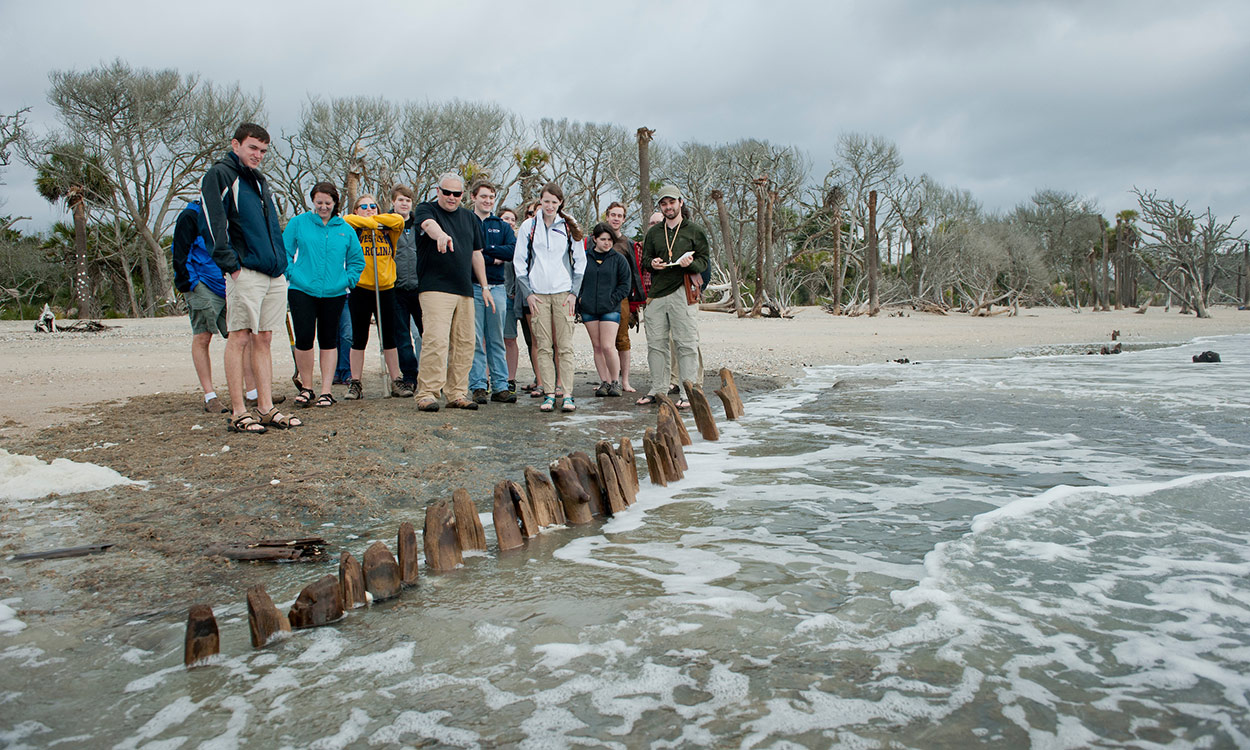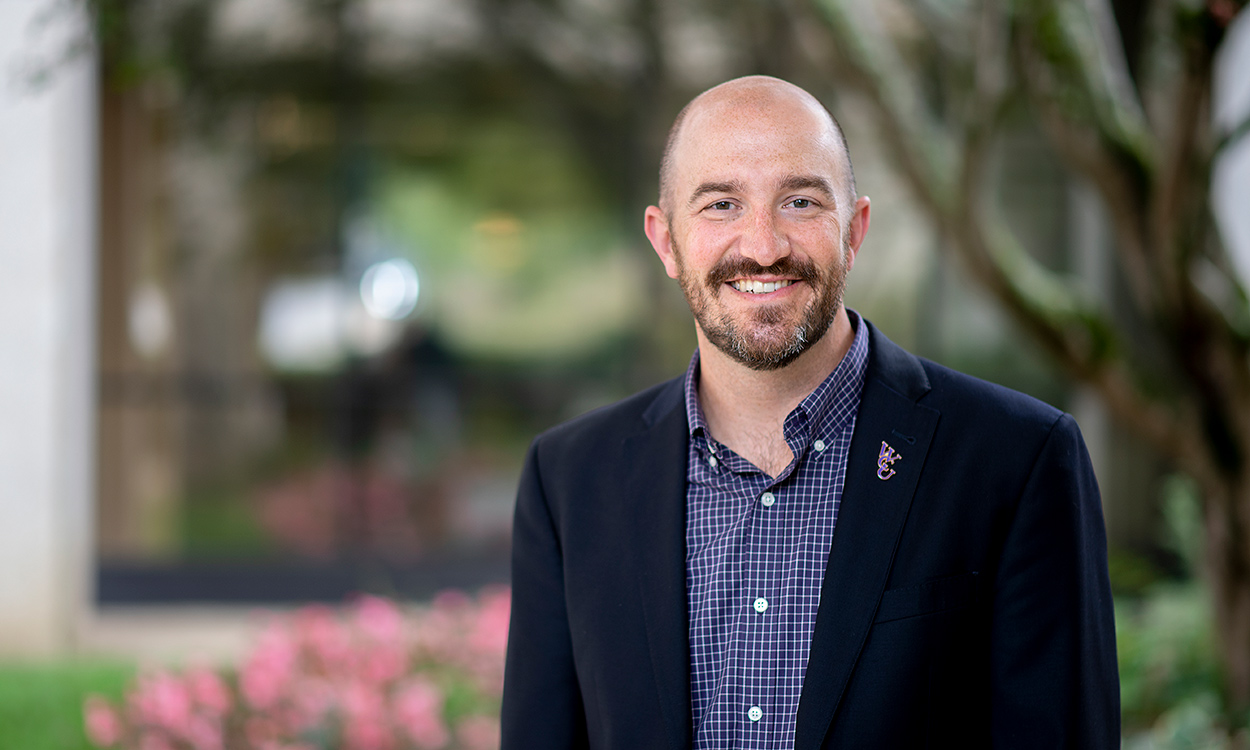Equestrian Club steps in to help clear coach’s flood-damaged horse farm
By Melanie Threlkeld McConnell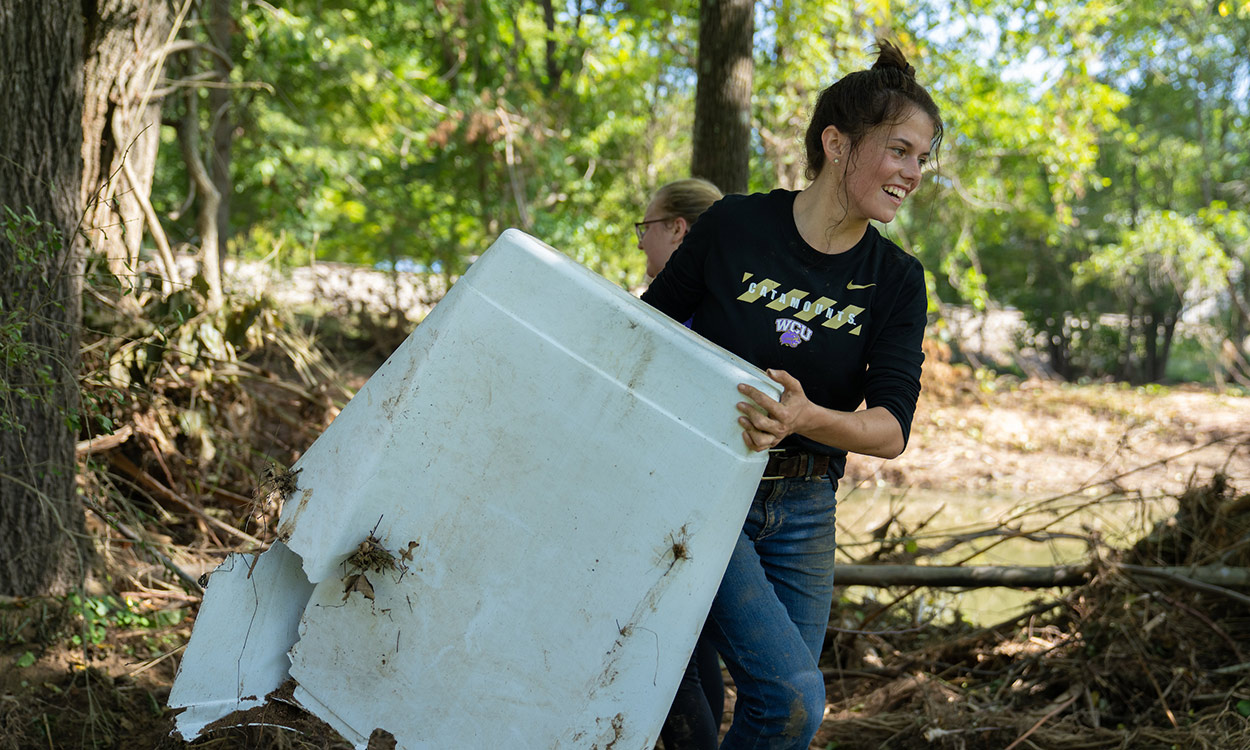
Freshman Suzannah McWilliam does some heavy lifting to help clean up Over the River Farm in Candler, which also is home to WCU's Equestrian Club.
They came on a hot, sultry Saturday morning with boots and gloves determined to clean up flood damage to what they consider sacred ground: Over the River Farm in Candler, home of Western Carolina University’s Equestrian Club.
“This is our practice place. We don’t have a farm on campus, so this is where we do all of our rides for the team,” said Lauren Moon, vice president of the club and a sophomore forensic science major from Raleigh, as she took a break from moving brush out of a washed-out pasture. It was just after 10 a.m. and already nearing 80 degrees.
Bordered on its north side by Hominy Creek and a railroad track, the 35-acre farm was flooded with mud, rocks, trees and other debris when Tropical Storm Fred drenched Western North Carolina on Aug. 17, just five days earlier. The heavy rain caused a landslide just off Interstate 40 near exit 37 in Haywood County, which contributed to the flash flood that ruined most of the horse farm’s pastures, left its riding ring filled with mud and silt, flattened fences, flooded outbuildings and washed away jumps, which the club needs to prepare for an upcoming competition.
Julia Collins, the farm’s owner who’s starting her fifth year as coach of the Equestrian Club, was out of the country at the time of the flooding. Her 11 horses were in stalls during the storm and were moved by Haywood County veterinarian Mary Coker to another farm. “Three quarters of the pastures are gone. We’ll have to reseed it, have to have a bulldozer come out and put the material back on and rebuild the creek bank,” Collins said. “We have to get all of those rocks back out and move all of the mud and dirt and silt.”
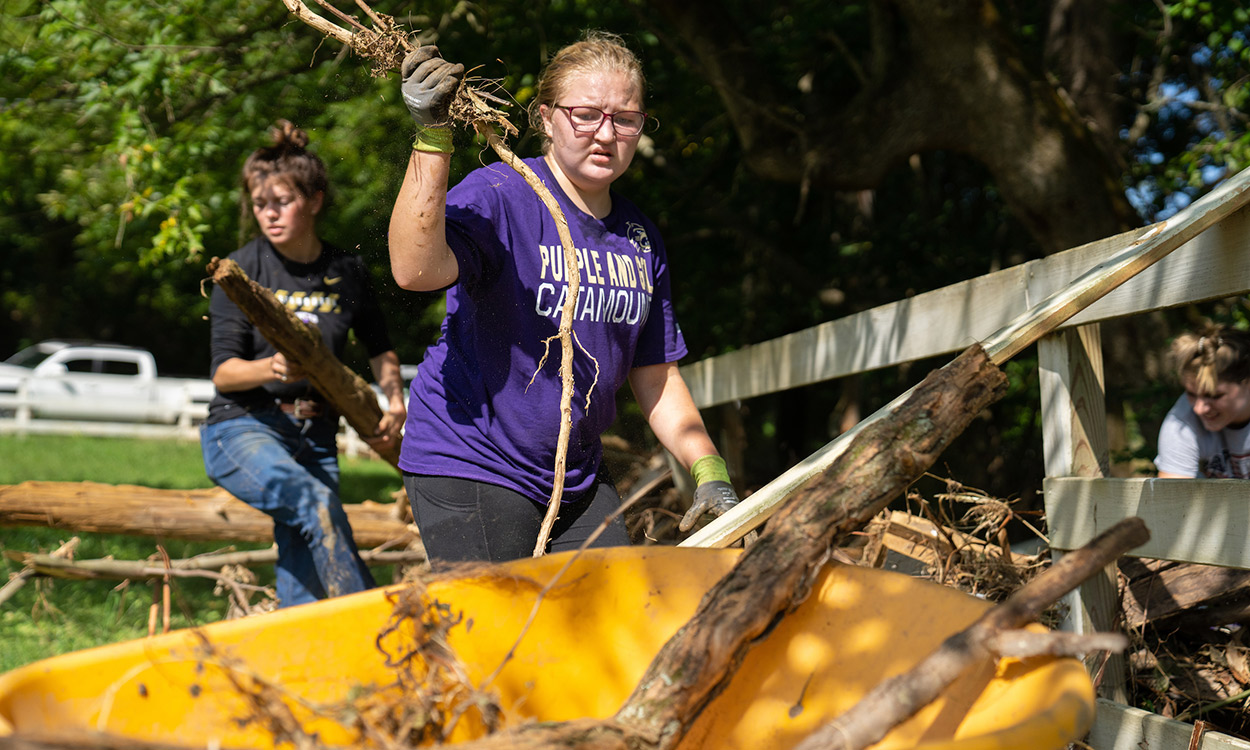
Sophomore Allie Hunsinger helps fill a wheel barrow with fallen tree limbs.
But on this day, she and nearly a dozen or more volunteers were moving tree limbs and hunting for washed away jumps, jobs her student equestrians say they wouldn’t miss, no matter how labor intensive. “The girls in our club are so happy to help Julia,” said Allie Hunsinger, a sophomore from Concord who is majoring in integrated health science. “We love Julia so much. In the time that I’ve been here, I’ve grown so much, like learning to be patient because you’re working with a horse. Just a few months in to riding, I fell off, but I got back on. I know all the girls here are happy to help her. We wouldn’t be where we are without Julia.”
Suzannah McWilliam, a freshman criminal justice major from Lexington, South Carolina, has been riding for 10 years. She knows what it’s like to clean up after a flood. “At my old barn in Lexington, we had a flood, too, and we had to salvage everything and clean it up again. When I got here to Western, the first text that I got in our group chat was about this, so I was eager to help in any way I could. I’ve only known Julia for two weeks—that’s as long as I’ve been at Western—but she’s an amazing person. I just want to help out as much as I possibly can.”
Collins agreed the club—which has about 25 members, all female this year, although it’s open to males—has a transformative effect on its members, some of whom had never ridden a horse before they arrived at WCU, Hunsinger among them. Collins credits the Intercollegiate Horse Show Association with helping to make the club accessible to all. “It’s one of the best things I’ve ever done. I love it so much,” Collins said.
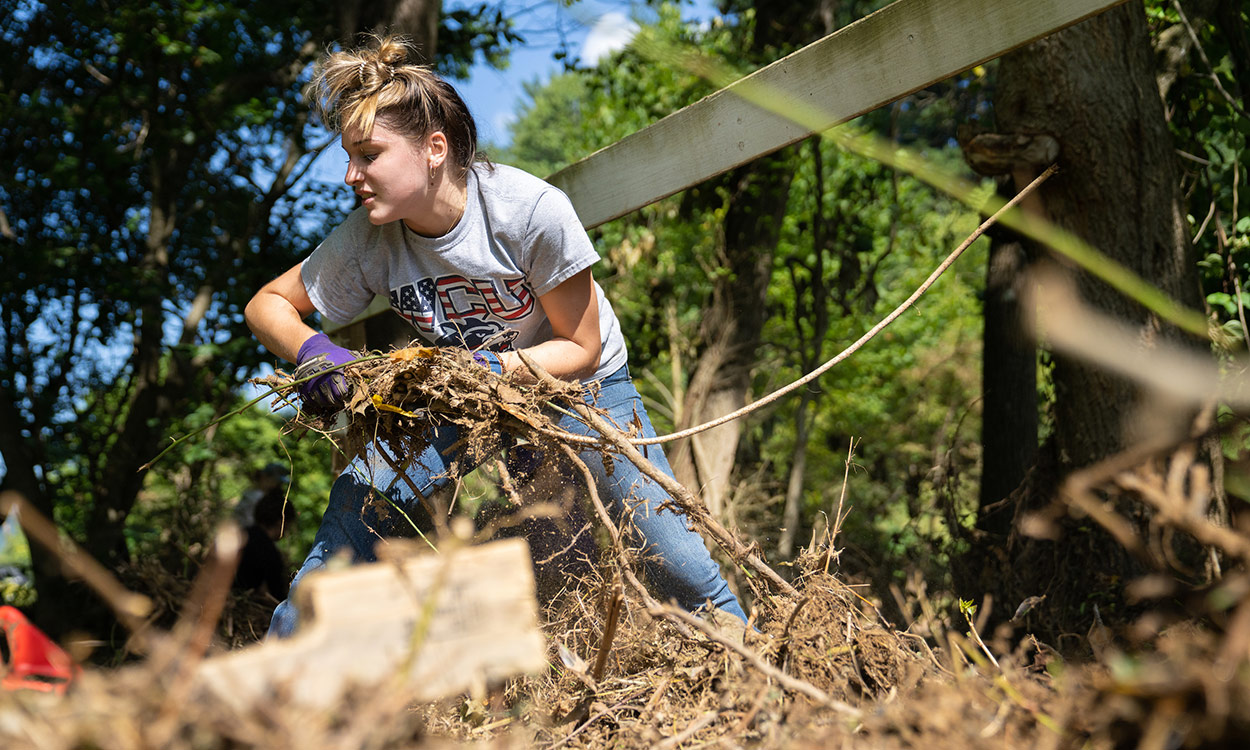
Lauren Moon, sophomore, is the vice president of WCU's Equestrian Club.
The club has become more than a place to ride and bond with others, Collins said, thus the students’ eagerness to help clean the farm. It’s become a safe place for many of its members who need a little extra care. And that’s been intentional, she said.
“When I took over WCU, I was very clear that I would not have mean people or drama people or anything like that in my club, and as long as they understood I had free reign to take who I thought would be a positive influence and representative of how my barn is, they said, ‘Of course, it’s your farm.’”
Among the remains of the farm’s white fencing, stands a thick, roughly four-foot white post with a flower pot on top. It’s a symbol and reminder, Collins said, of the farm’s (and her) ability to survive natural disasters. It was the only post standing after Hurricanes Ivan and Frances hit back-to-back in 2004, producing wide-spread flooding and devastation. “We’ll have to take down every fence that’s standing, except for that big post. That made it through the first flood and I vowed to never take it down,” she said. “I didn’t care if it stood in the middle of nothing. It is the survivor. That post represents me. That stays.”
